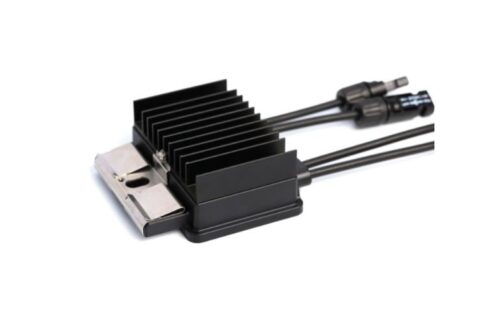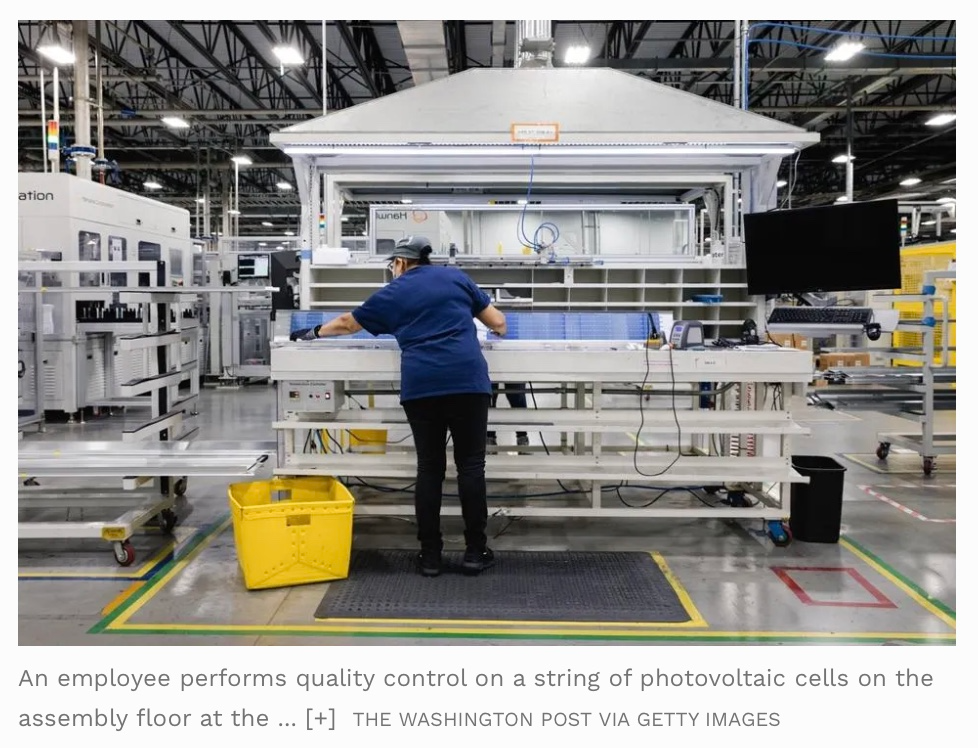American-made power optimizers can increase IRA credits available to inverter makers
|
In 2022, the Inflation Reduction Act (IRA) aimed to overhaul the clean energy sector by infusing billions of dollars into the cleantech industry. While it focuses on accelerating the energy transition and bringing the manufacturing of more cleantech components back to the United States, the anticipated transition for solar microinverter companies is progressing slower than expected. Proposed new guidelines for the IRA’s Advanced Manufacturing Tax Credit (45X) present a catalyst for making solar more affordable by increasing competition, accelerating solar PV adoption, and boosting American-based manufacturing.
Original IRA incentives did not treat all inverter technologies equally. It prioritized microinverters at 11¢/W, despite their lower energy efficiency compared to DC-coupled hybrid inverter systems. U.S.-built residential and commercial inverters are incentivized much less, creating a pricing imbalance that has given microinverters a pricing advantage over more energy-efficient alternatives — a move that is antithetical to the IRA’s intention of making energy-efficiency technology affordable and widely accessible.
Driven by the full 11¢/W tax credit, microinverter giants like Enphase are strongly motivated to shift production to the United States to adhere to the “Made in the USA” requirement. Conversely, the lesser incentive of 6.5¢/W for residential and commercial string inverters and a mere 2¢/W for inverters with capacities exceeding 20 kW diminishes the appeal for string inverter companies to relocate production from Asia back to the United States.
The proposed guidance for the 45X credit aims to rectify this disparity by equalizing tax benefits for string inverter and microinverter suppliers. It extends the same 11¢/W incentive to a DC-optimized inverter system if module-level power optimizers are integrated with the inverter, forming a comprehensive system solution that adheres to the “Made in the USA” criteria. For example, a 15-kW inverter solution will give the manufacturer over $1,650 in tax credits, which can translate to a $4,000 lower reduction in cost for the consumer.
By combining these significant tax credits and extending them to more inverter suppliers, when measured against the high tariff cost of imported solar products, it seems very likely that the legislation will accomplish the government’s goal and vastly change the solar industry landscape.
The IRA also provides significant financial flexibility in applying the tax credits through the tax incentive transference process. If the solution provider cannot wholly take advantage of tax credits, it can sell them to another U.S.-based business that can use them to reduce its own tax burden. For many solar companies that are not profit-making and who, by selling their tax credits, would be able to use that money for reinvestment, that’s incredibly advantageous.
Adding module-level power optimizers to a string inverter setup will allow inverter manufacturers to access more tax credits. Enteligent is a provider of plug-and-play power-line communications (PLC) optimizers, and the company’s NMax optimizers will soon comply with the 45X credit rules for solar inverters to qualify for the full 11¢/W tax credit. Enteligent’s hardware production is currently in the Philippines, but the company anticipates having U.S.-manufactured units ready for partners by the second quarter of 2024.
The IRA represents a key milestone for solar companies and the wider renewables industry toward producing clean, home-grown energy. Its updated 45X guidance has the potential to be game-changing for the industry by creating a level playing field for solar inverter suppliers. Inverter companies in the United States will live or die by this legislation. Those who fail to maximize these benefits risk finding themselves at a significant disadvantage. It is imperative for the industry to comprehend the legislation’s implications and collectively strategize to optimize its advantages.
 Sean Burke is CEO and a co-founder of Enteligent. Enteligent is a California-based developer of smart solar power optimization and solar EV charging technologies that increase energy utilization, improve returns on energy investments, and enable critical paradigm shifts in how we use energy for the upcoming green electrification revolution. Enteligent’s NMax photovoltaic module power optimizers use smart digital technology to dynamically adjust when to optimize and provide panel-level monitoring data, resulting in greater rooftop yield, more energy harvesting, and higher system reliability. Enteligent’s bidirectional DC solar EV chargers enable direct electrification from clean energy to charge faster and more efficiently, recouping up to 25% of the electricity lost by traditional means.
Sean Burke is CEO and a co-founder of Enteligent. Enteligent is a California-based developer of smart solar power optimization and solar EV charging technologies that increase energy utilization, improve returns on energy investments, and enable critical paradigm shifts in how we use energy for the upcoming green electrification revolution. Enteligent’s NMax photovoltaic module power optimizers use smart digital technology to dynamically adjust when to optimize and provide panel-level monitoring data, resulting in greater rooftop yield, more energy harvesting, and higher system reliability. Enteligent’s bidirectional DC solar EV chargers enable direct electrification from clean energy to charge faster and more efficiently, recouping up to 25% of the electricity lost by traditional means.




![The POWER [Magazine] Interview: IRA's Impact on Solar's Evolution](http://enteligent.com/cdn/shop/articles/ENT_-_Optimizer_v3.png?v=1723490505&width=1800)